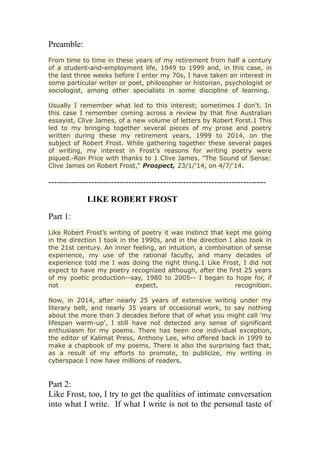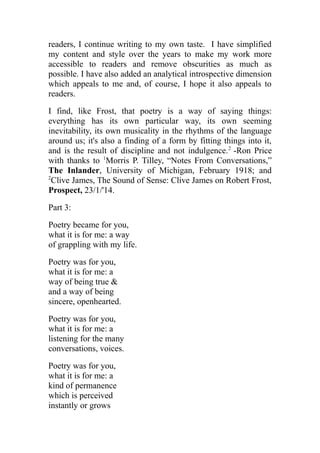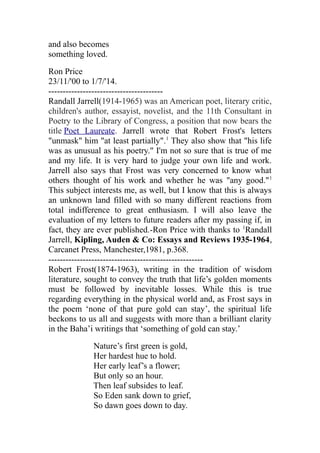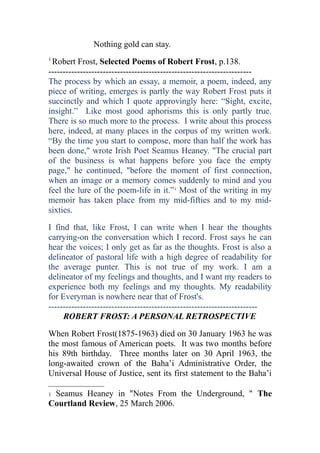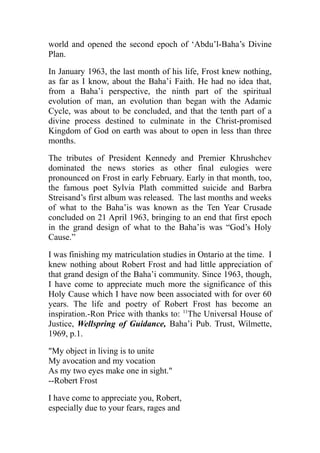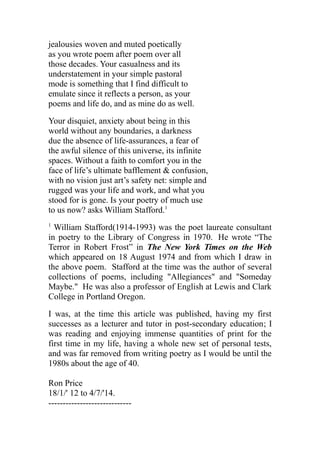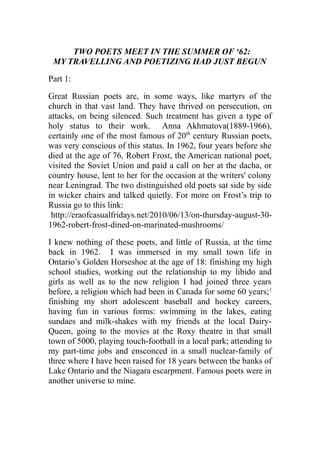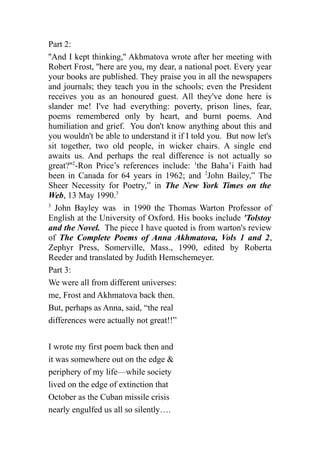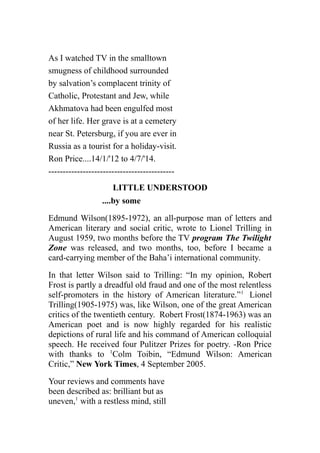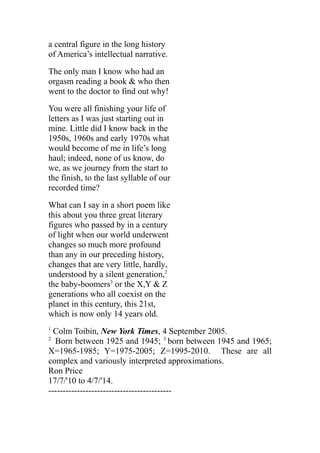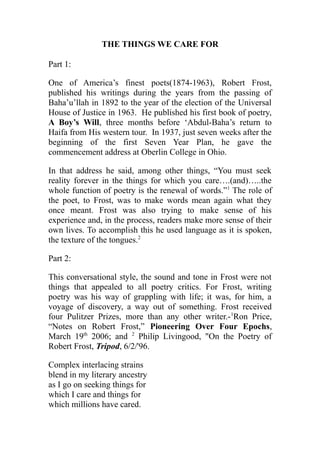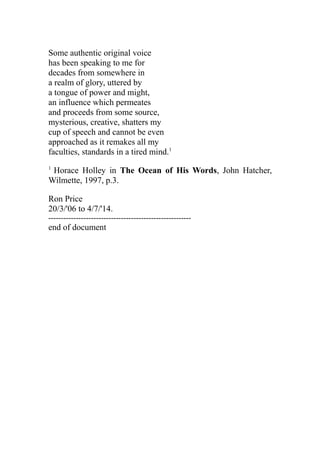The document reflects on the author's life and writing journey, drawing parallels with Robert Frost's work and philosophy throughout various decades. The author expresses his admiration for Frost's poetic process and the personal significance poetry holds for both of them. It also touches on the struggles of recognition in poetry, the juxtaposition of their experiences, and the broader context of literary influence in their respective eras.
